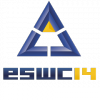Sidebar
This is an old revision of the document!
Table of Contents
AI Mashup Challenge 2014 - CFP
Deadlines - Important dates
- Mashup announcement: March 1st, 2014
- Paper submission: March 15th, 2014
- Notification of acceptance: April 7th, 2014
- Camera-ready paper submission: April 14th, 2014
- AI Mashup Challenge session, talks on running mashups, to-be-announced
- Poster and Demo session, mashup presentation and vote, to-be-announced
- Closing ceremony, distribution of awards, to-be-announced
- Post-proceedings extended paper submission: to-be-announced
- Post-proceedings notification of acceptance: to-be-announced
Mashups
A mashup is a lightweight (web) application that offers new functionality by combining, aggregating and transforming resources and services available on the web. Combination alone is not enough to call it a mashup. Consider, for example, visiting a site that is written in a foreign language. Simultaneously using a dictionary in order to translate certain words is not a mashup. A possible mashup would be a new service allowing to click on a foreign word and simultaneously get it translated.
For example MICI is a mashup which demonstrates how situational awareness in emergency management can be raised by pointing to critical infrastructure near emergencies. MICI uses live fire call data from data.seattle.gov and enhances it with information about nearby objects from Linked Geo Data.
A mashup overview as well as a long list of mashable items can be found at programmableweb. For those of you that prefer to read a book, you can take a glance at Ogrinz's Mashup patterns, Hanson's Mashup strategies or Shanahan's Amazon.com Mashups. There are also mashup guides for specific services like Flickr or Yahoo!.
Participants of the 2011 and 2012 challenges contributed to an (e)book “Semantic Mashups - Intelligent Reuse of Web Resources”. It was published by Springer.
Some Mashup Tools
Google AppEngine — Yahoo Pipes — Yahoo Boss — Sprout Mashup Builder — JackBe Mashup Builder — Convertigo
Some Semantic Web Tools
Some Speech-based Web Resources
AT&T Speech Mashups — AT&T Speech API — Tropo —Twilio — NeoSpeech — Acapela — Ivona — VoiceForge
Topics Of Interest
The AI mashup challenge accepts and awards mashups that use AI technology, including but not restricted to machine learning and data mining, machine vision, natural language processing, reasoning, ontologies in the context of the semantic web. Imagine for example:
- Information extraction or automatic text summarization to create a task-oriented overview mashup for mobile devices
- Semantic Web technology and data sources adapting to user and task-specific configurations
- Semantic background knowledge (such as ontologies, WordNet, Freebase or Cyc) to improve search and content combination
- Machine translation for mashups that cross-language borders
- Machine vision technology for novel ways of aggregating images, for instance mixing real and virtual environments
- Intelligent agents taking over simple household planning tasks
- Text-to-speech technology creating speech mashups with intelligent and emotional intonation
- Speech-to-text technology for interactive speech mashups and multimodal services
- The display of Pub Med articles on a map based on geographic entity detection referring to diseases or health centers
- The integration of enterprise data - see Open Mashup Alliance.
The emphasis is not on providing and consuming semantic markup, but rather on using intelligence to mashup these resources in a more powerful way. For more ideas have a look at last year's AI Mashup 2013 Challenge.
Instructions for Challengers
This year, the awards will be decided both by the Program Committee and the Conference participants. The Program Committee will provide the 40% of the final score of each mashup whereas the Conference participants will vote for the remaining 60%. The Program committee will also decide which mashups will participate in the event.
- As soon as you decide to participate in this event, register your mashup by sending an email to Ioannis Papadakis (address below). The organizers will provide you with access to a subpage of this wiki in order to advertise your mashup and refer to its URL. Have in mind that your mashup stays at your URL and under your control. You can go on improving it until the days of the conference.
- Submit a 5-page paper (LNCS format) corresponding to the mashup. Be careful, there is a deadline for paper submission! All submissions will be peer-reviewed. The reviewing process will result in the mashups that qualify to participate in the event and claim the awards.
- The Challenge will have its own session during the conference and you will be asked to present your mashup with a poster and/or laptop.
- At the end of the event, all Conference participants will vote for the best mashup. Their vote together with the evaluation of the Program Committee will decide the winners of the Challenge.
- The top-three papers will be published in supplementary post-conference proceedings to be published by Springer in the Lecture Notes in Computer Science series. If your paper belongs to the top-three, you will be asked to address the reviewers' comments and provide a camera-ready version as well.
- Have in mind that you have enough time until the days of the Conference to improve your mashup and increase your chances to win the awards.
Contact
The organizers are glad to help. Please send them an email!
Organizers
- Michalis Stefanidakis mixstef@gmail.com
- Giuseppe “Pino” Di Fabbrizio difabbrizio@gmail.com
- Ioannis Papadakis ipapadakis@gmail.com
Important Notice
Participants with a qualified mashup must register for the conference and present their system during the AI Mashup Challenge 2014 session. A space for demonstration will be allocated for each participant. Participants should bring an A1 poster and/or use their own laptop. The organizers should be contacted in case of any special requirements.


